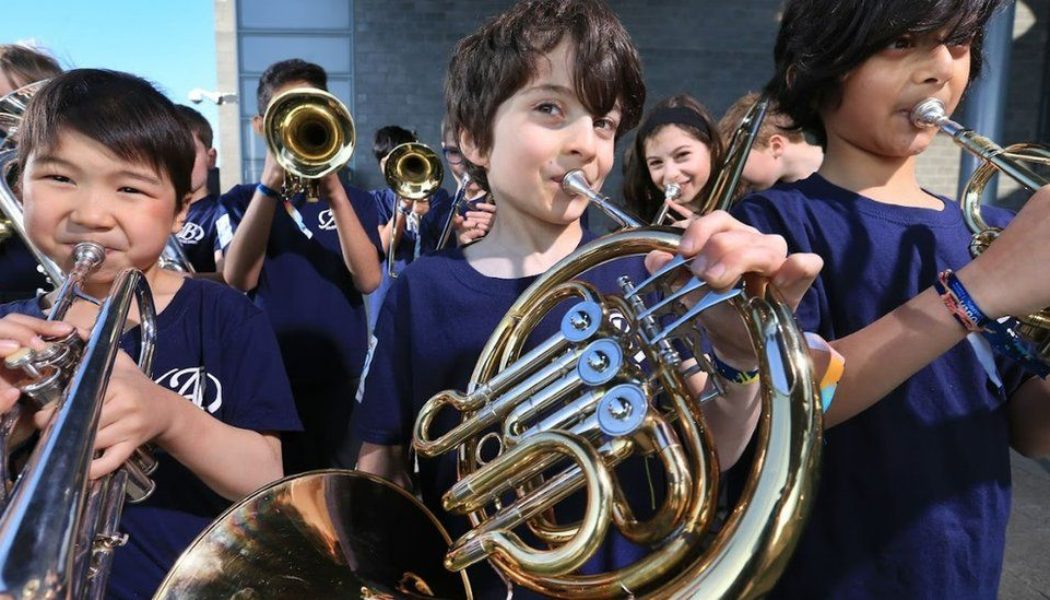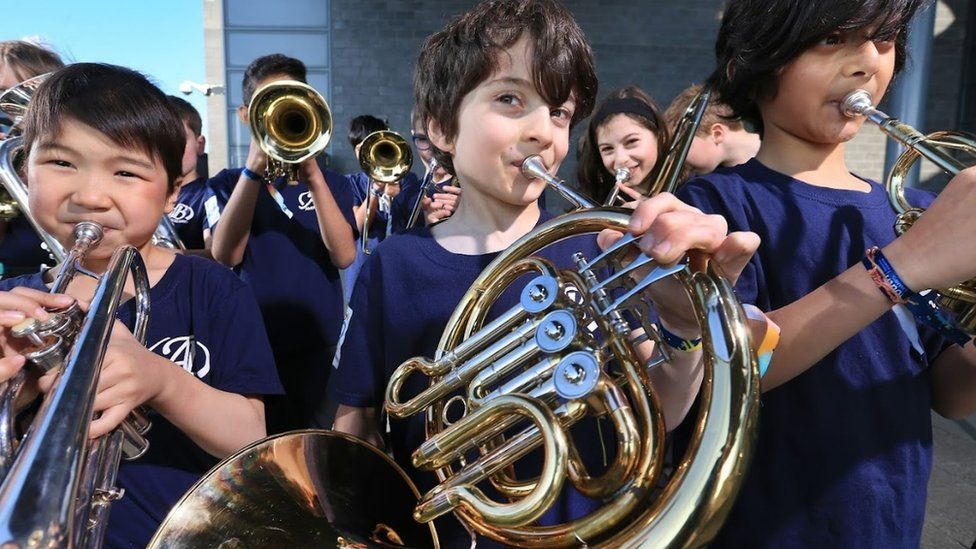
Tradition and familiarity is at the heart of British brass bands, but should it be?
Military marching bands have long accompanied state celebrations; Queen Elizabeth II had 24 such bands playing at her coronation in 1953 and one of the world’s most illustrious is The Band of the Grenadier Guards set up by King Charles II more than 300 years ago.
However, as civilian groups struggle to recruit members, some brass bands are looking to current music for inspiration to help them appeal to younger audiences and players.
“We have a rich tradition, so we mustn’t throw the baby out with the bathwater, but we have to persuade people that it’s not just marches or hymns,” Brass Bands England‘s youth development lead Paul McLaughlin says.
The organisation acknowledges bands’ very real fears that membership is dwindling significantly.
After the pandemic some brass bands folded completely and others lost up to three quarters of their musicians.
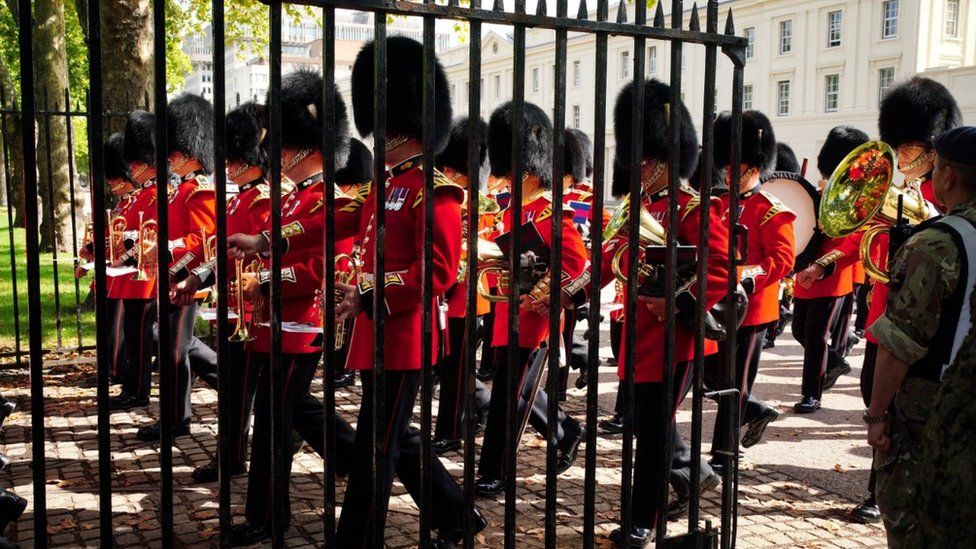
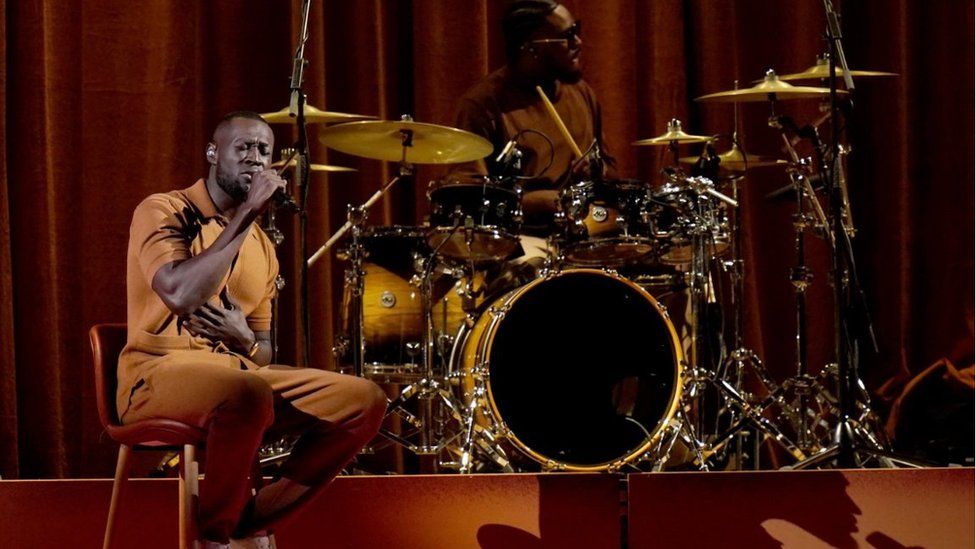
“Bands want to thrive and are doing all they can to attract younger players,” its CEO Kenny Crookston says.
“We have to change the way we are perceived,” Mr McLaughlin agrees.
“I love telling children that Stormzy’s second album opens with a trombonist,” he adds triumphantly as proof that brass can still be relevant in today’s youth culture.
Andrew Slater, 26, is among the wave of younger players bands are urgently trying to reach.
He won the UniBrass Shield 2018 with Bristol University and said his reason for being involved was simple.
“It is music that is inherently uplifting. It feels powerful and moving in the sound it creates.
“That sense of pride is at the heart of why we do brass banding.”
But even he can see that attracting new young players is a challenge.
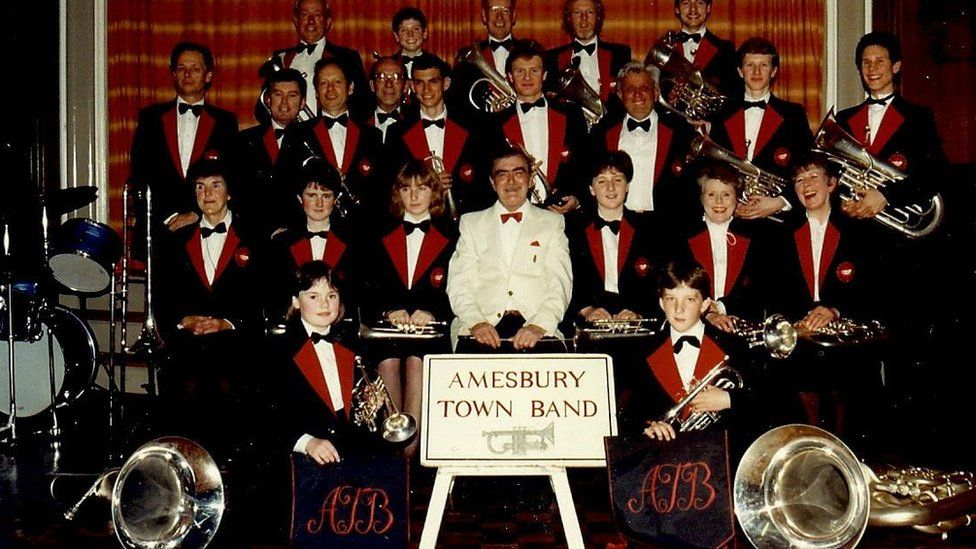
“One band I played in, in Somerset, had no one else under 30.
“We need to widen our repertoire. My experience is that the music is always similar. Familiarity is wonderful, but it illustrates the challenges of bringing in younger members.
“And if people are not prepared to commit, that seriously impacts a band’s ability to perform or compete.”
His father Neil Slater, 53, who grew up in Wiltshire playing the baritone horn, concurs.
“After the pandemic my current band, Blewbury, dropped to six people instead of 25. It’s of huge significance.
“We must rebuild by getting brass back into schools. Contacts are being made and there is hope,” he adds.
Many bands future-proof themselves by engaging children from a young age; through providing instruments, teaching in primary schools and running youth or training bands.
“This provides an excellent funnel system. If lots of children start, some will naturally leave, but enough will have the dedication to progress to the main band,” he says.
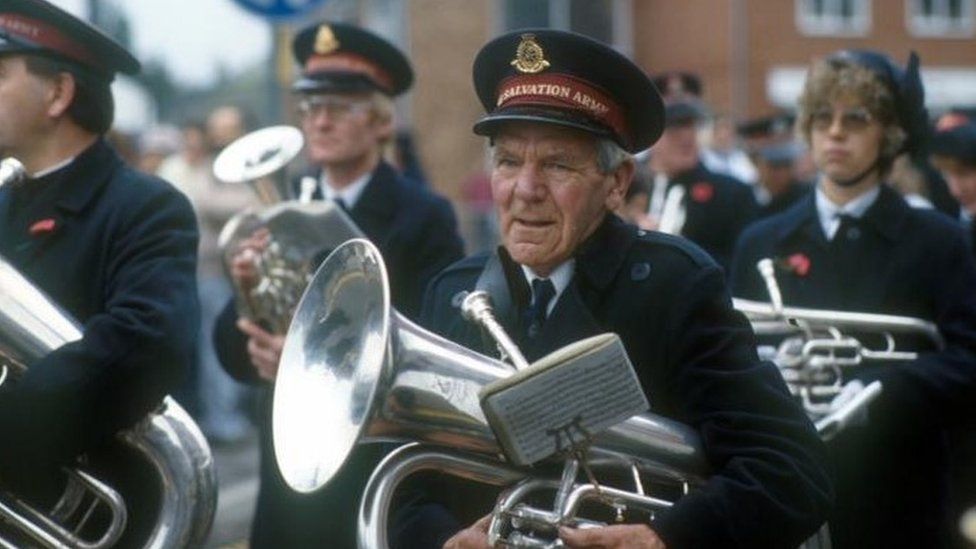
Brass bands have a rich history of bringing people together.
By the late 1800s there were about 20,000 bands. The music was familiar through military, village and church groups and instruments were affordable due to mass manufacturing.
Organisations such as The Salvation Army, founded in 1865, established a brass band tradition that still flourishes today.
The closure of the collieries from the 1980s inevitably led to a corresponding collapse in the brass bands associated with them. This decline is depicted in the 1996 British film Brassed Off, which conversely helped promote brass bands and their music.
“Bands have survived testing times before and will survive this,” Andrew Slater says.
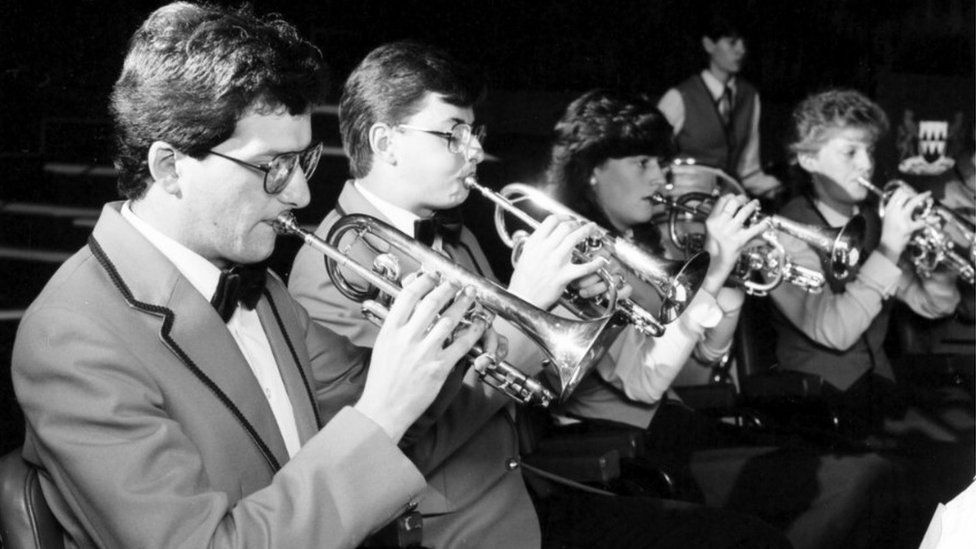
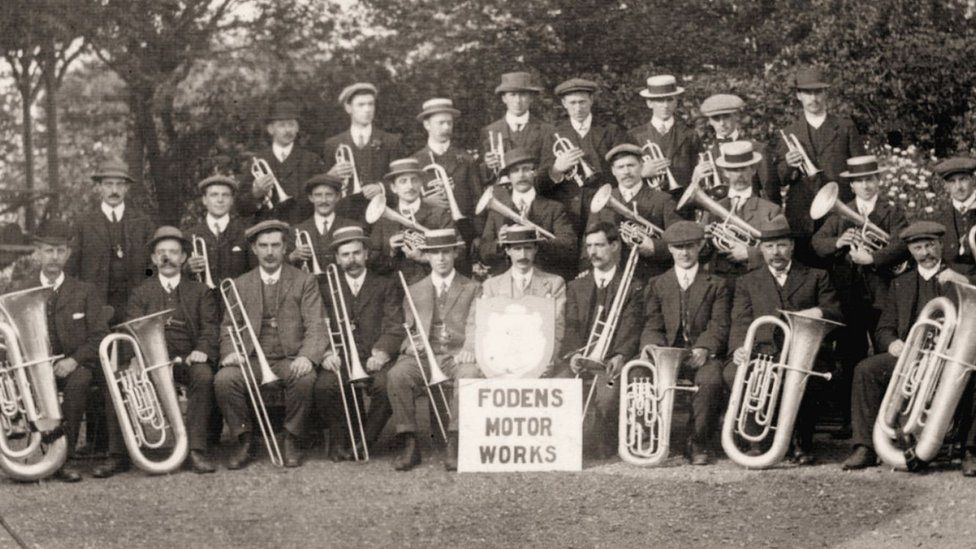
“Covid was a very, very difficult period, but it has been the time of greatest activity for Brass Bands England (BBE),” its CEO Mr Crookston says.
“The bands who survived were the ones that kept active during the pandemic, that’s the secret.”
“Bands have got to change, rather than saying ‘This is the way we’ve always done it.’
“Sustainability comes from becoming part of the community.
“Some of the most historic bands in the country, such as Foden’s in Cheshire, which is also one of the best in the world, realised the old model of industrial support is unstable and no longer the way ahead.
“Becoming a community band and creating education music hubs is central to prosperity,” Mr Crookston continues.
“This is where the real strength is.”
The ideal model, according to BBE, is a beginners’ band for primary pupils, a youth band for the 16-18 age group, a training band, then the main band.

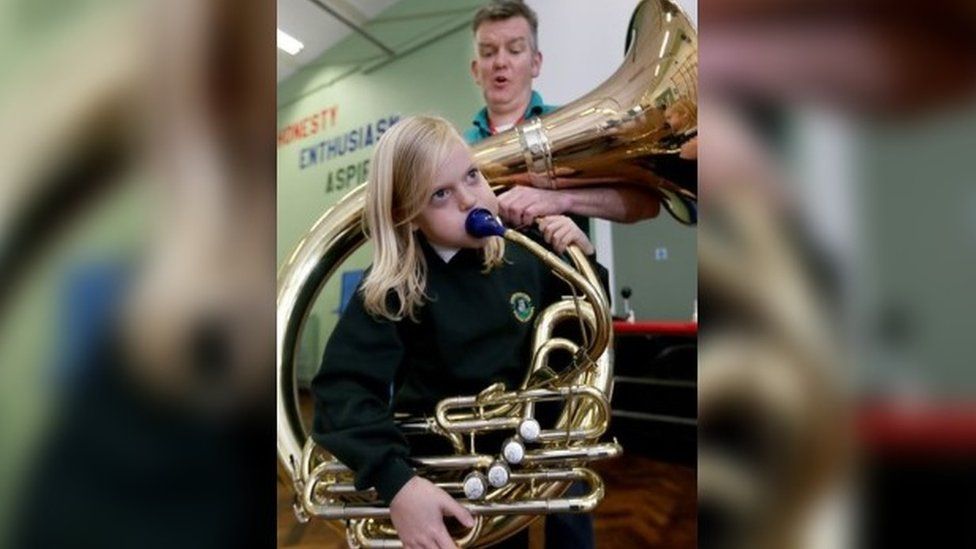
BBE has been ambitious since the pandemic; setting up five Brass Foundations across the country with a grant from the government’s Culture Recovery Fund.
Five youth specialists have been employed to nurture links between primary schools and local brass bands.
Mr McLaughlin runs one in Gloucestershire and says in the two years since it began, they have hosted 100 workshops which is encouraging about 1,600 children to get involved in music.
“There’s a lot of work going on around the country with bands taking on challenging repertoire; so moving into jazz or pop and working with artists in these fields adds something a bit different,” he says.
Charlie Wolfe is nine and plays the cornet in the Cheltenham Silver Band.
He says: “I never knew some of my favourite tunes could be played on a brass instrument.
“I did an English Symphony Orchestra youth weekend and we played Mambo No. 5. It was amazing; so loud and really good to participate in.”
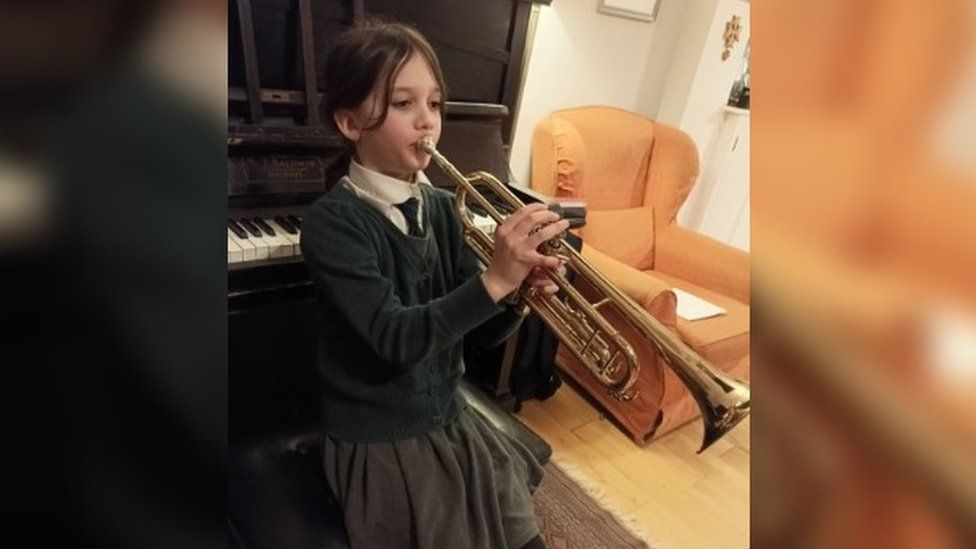
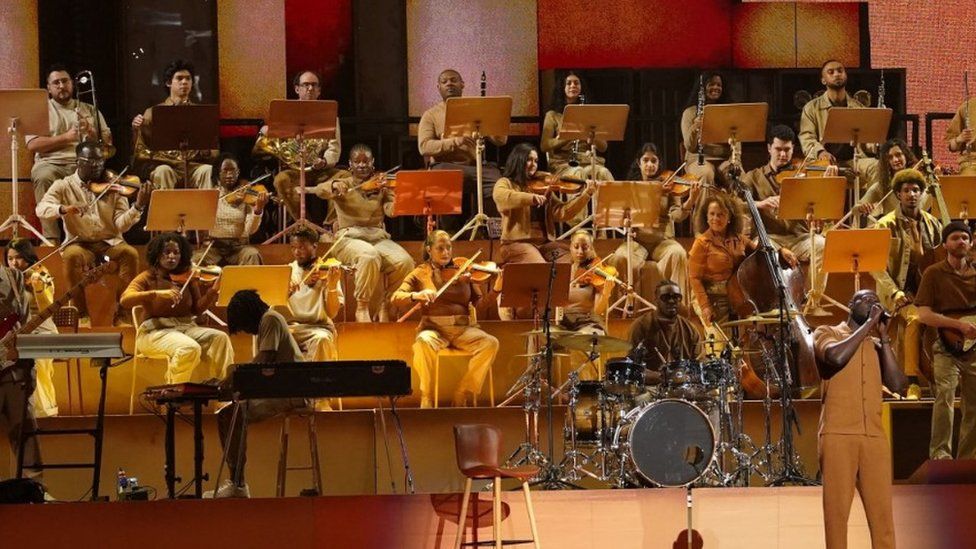
Some elite bands are bucking the trend and far from declining, are flourishing.
Flowers Band, based in Gloucestershire, is currently ranked sixth in the world.
The band tours regularly and attracts big audiences. About half its membership is under 30. They will be playing in the finals of the National Brass Band Championships of Great Britain at the Royal Albert Hall in October.
“We have a busy year ahead with competitions, but we’ve done more self-promotion, so scheduling concerts ourselves rather than waiting to be booked,” its manager Gregor Spence reveals.
“We also hosted a workshop for 50 managers in the oil industry using conducting as a metaphor for good leadership skills.”
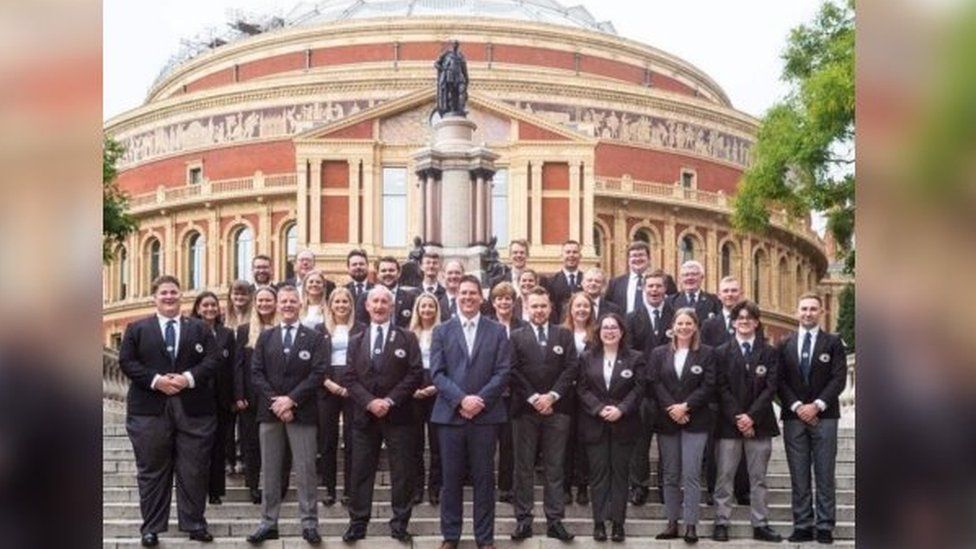
Later in March thousands of children will be participating in the Youth Champs 2023 with a record 38 bands taking part from across England and Wales.
Proms in the Playground also returns for its third year in the summer.
BBE has also announced a new collaborative programme, Elevate, designed to bring bands and artists together in a nine-month partnership.
Member bands are encouraged to apply to push the boundaries of their normal performance repertoire.
BBE CEO Mr Crookston says there is hope yet because: “the wonderful thing about brass is you can do it anywhere, at any age”.

Follow BBC West on Facebook, Twitter and Instagram. Send your story ideas to: bristol@bbc.co.uk
